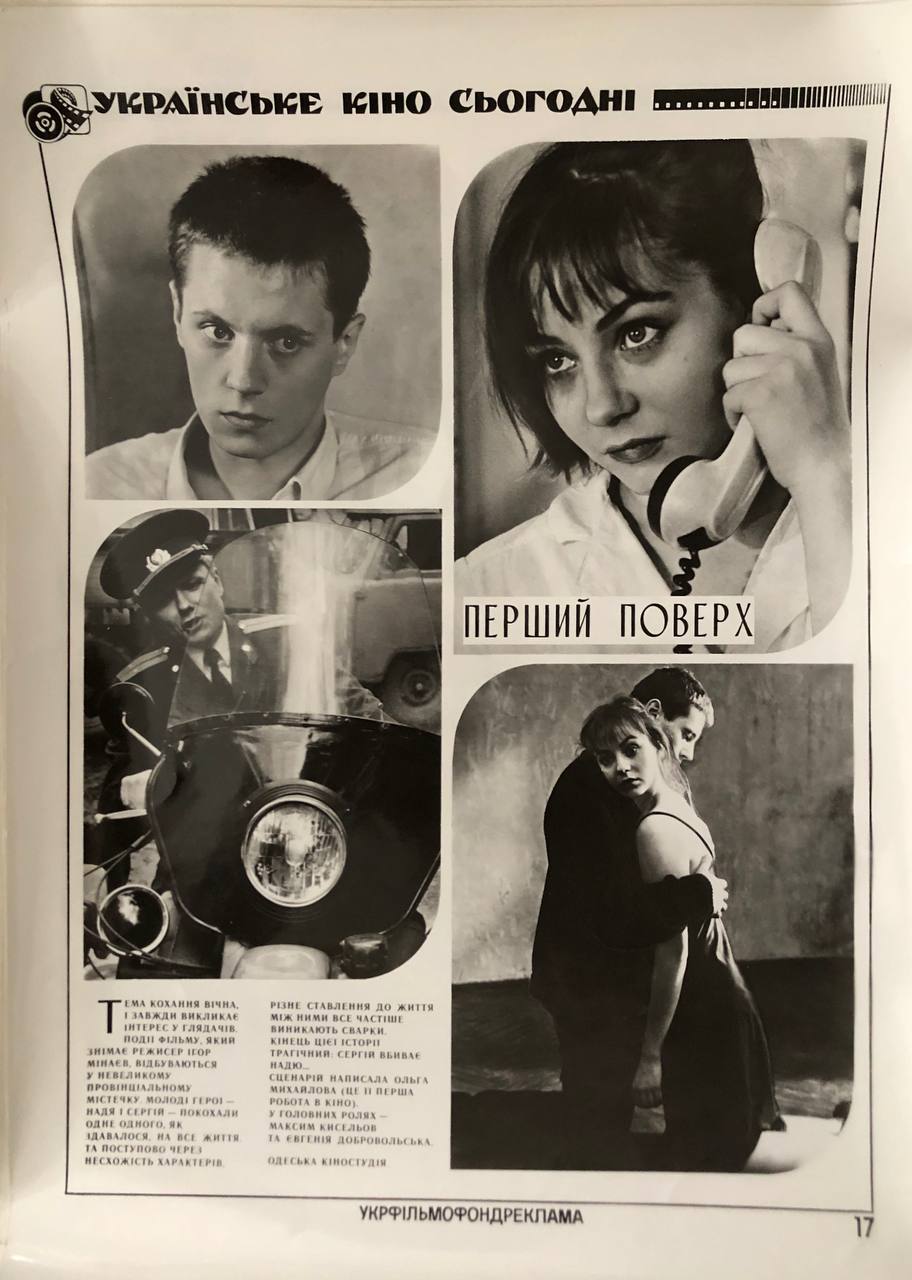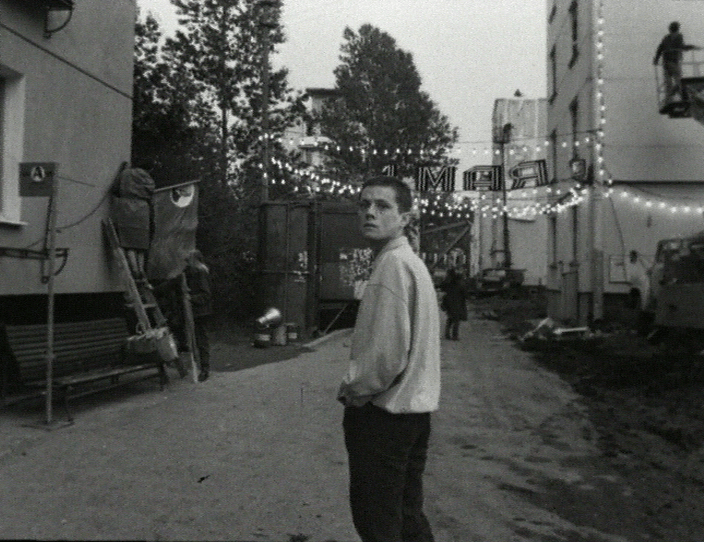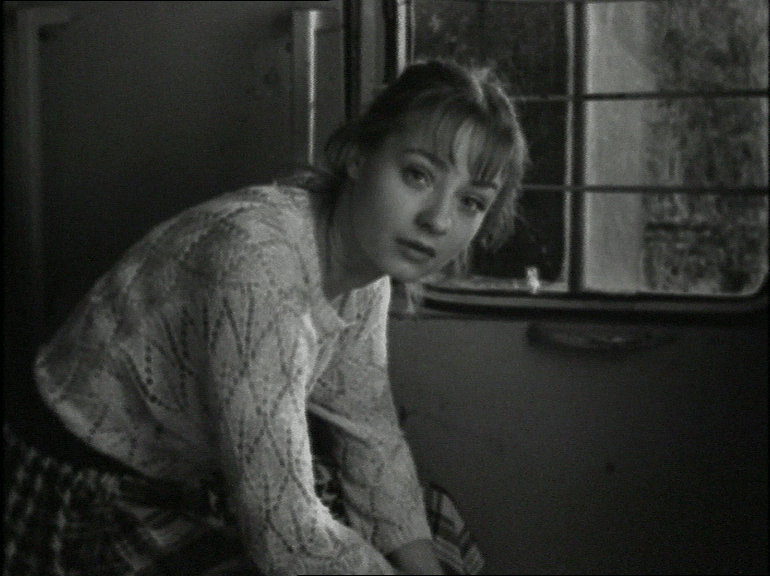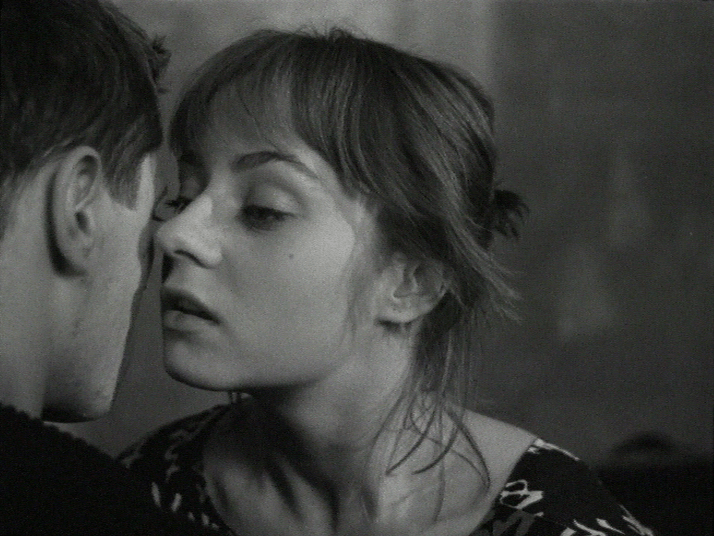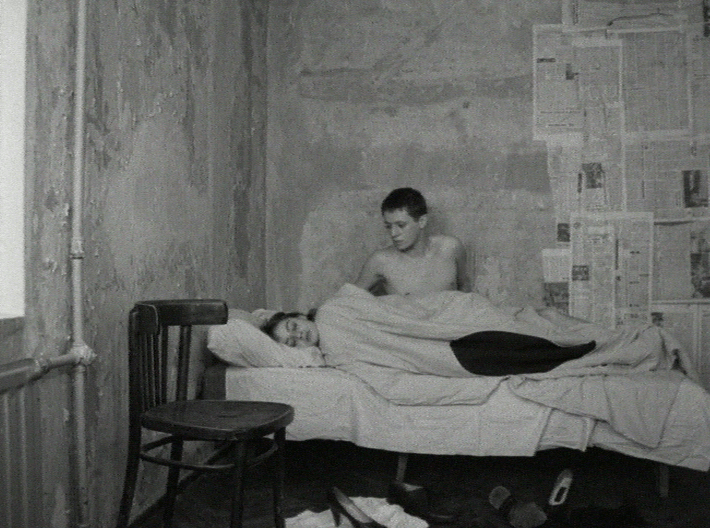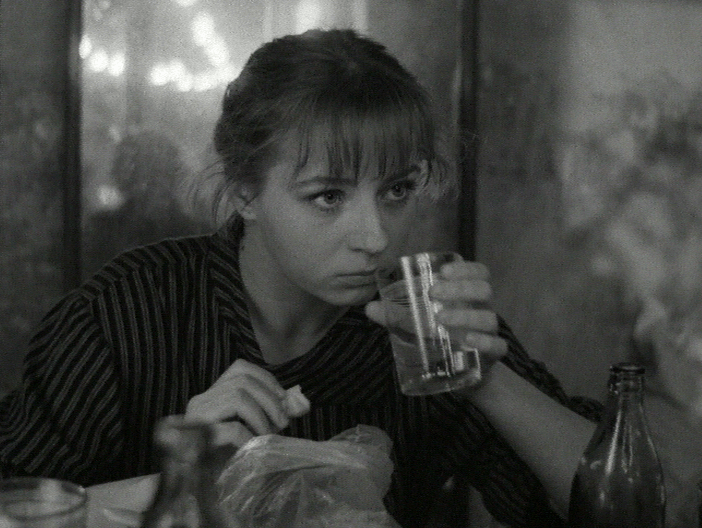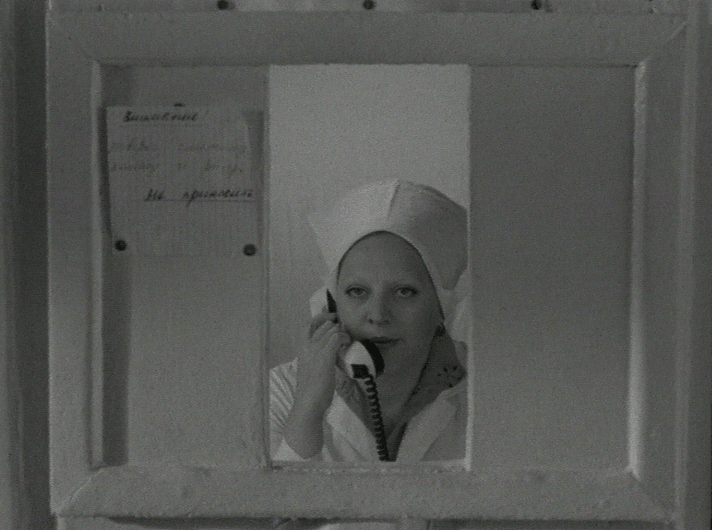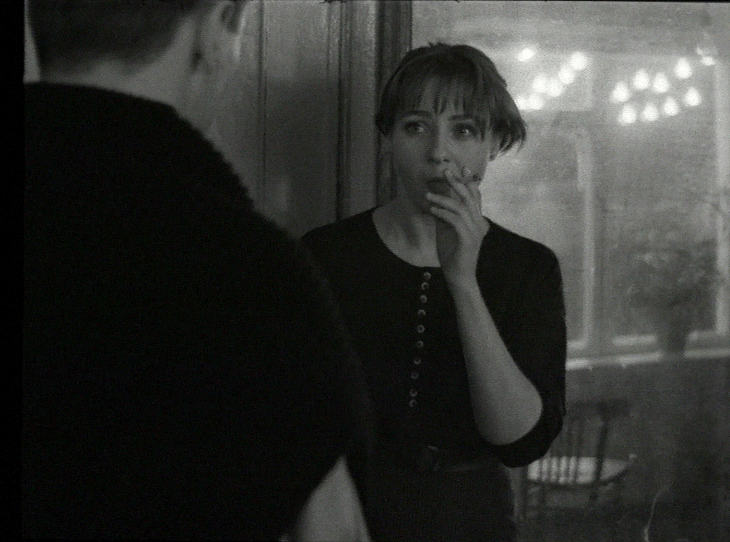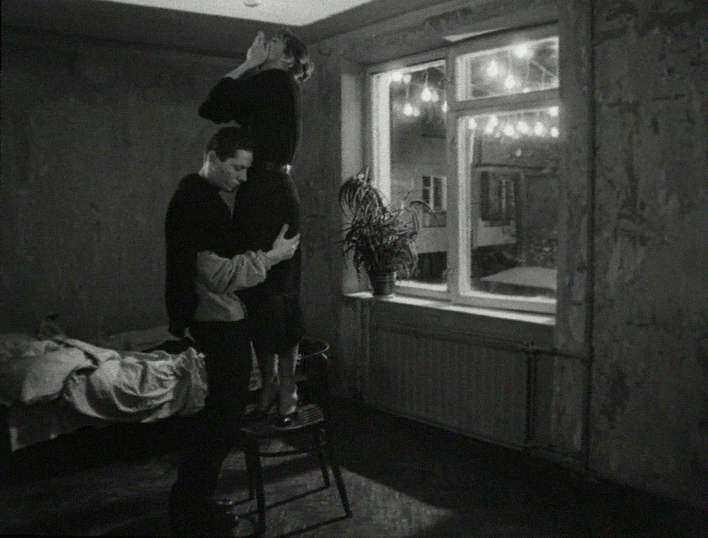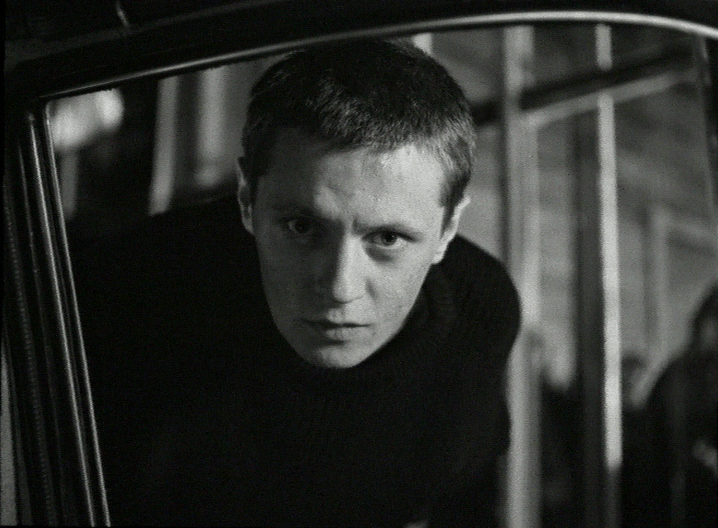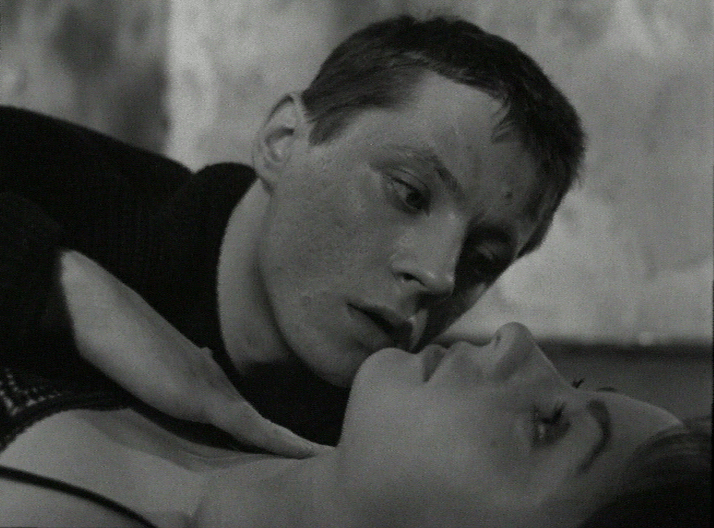
First Floor / Pershyi poverkh
1990
Ukrainian SSR
Odessa Film Studio
66 min
Ihor Minaiev
Olga Mikhailova
Volodymyr Pankov, Vitalii Sokolov-Oleksandrov
Evgeniia Dobrovolskaia, Maksim Kiselev, Mykola Tokar, Svetlana Kriuchkova, Liudmila Davydova, Aleksandr Berda
While on duty with a police patrol, Serhii accidentally meets Nadia – and falls in love. The strange story of their relationship unfolds as the seasons change outside the window of the young woman’s apartment on the first floor of a typical Soviet-era apartment block. The love story takes on strange and eventually dramatic turns, echoing the fate of the last years of the ailing Soviet country.
The second of Ihor Minaiev’s two noteworthy full-length films for the Odesa Film Studio, was created after his emigration to France. The studio staff miraculously tracked down the director’s Parisian number to remind him about the signature under the agreement for the screenplay by Olga Mikhailova. This is how the creative tandem of Minaiev-Mikhailova was born, which remains active to this day, resulting in one of the most bizarre films of the ‘Perestroika’ cinema. The plot, a loose adaptation of Carmen, unfolds against the backdrop of communist demonstrations. The nature of the half-dead, frightened Saint Petersburg is aesthetically captured with sophisticated cinematographic techniques reminiscent of the brilliance of 1940s cinematography by Volodynyr Pankov, who also filmed Cold March and collaborated extensively with Kira Muratova. The austere ‘kitchen sink’ realism occasionally gives way to a neurotic, chilling eroticism: a famous scene where the protagonist treats his lover’s legs with boiling water, inspired by Minaiev’s childhood memories of a strange incident involving his sister, is something that could impress even Charlie Kaufman.
The personal drama of First Floor cannot be separated from the political setting: on one hand, the characters’ relationships are as toxic as they come, on the other hand, they cannot be divorced from the poisonous influence of the surroundings. It’s no coincidence that the film is named after a location trope, paying homage to the eternal housing issue. Director Minaiev was fortunate to escape the Soviet Union, where for more than a decade, obstacles prevented him from pursuing his passion. Yet, even in France, he continues to explore the phenomenon of Soviet life, as seen in the editing reel Cacophony of Donbas (2018)
